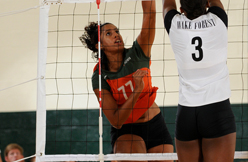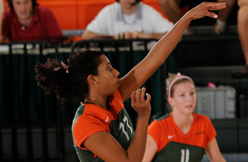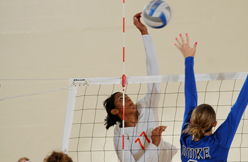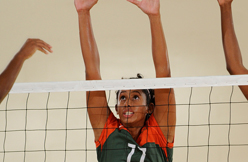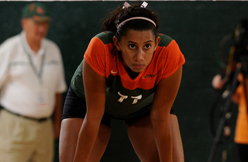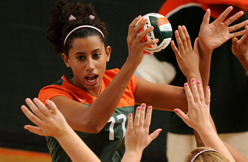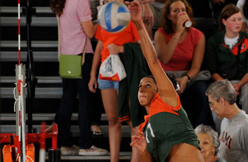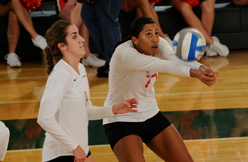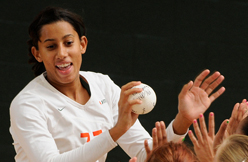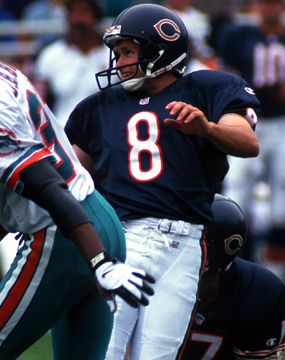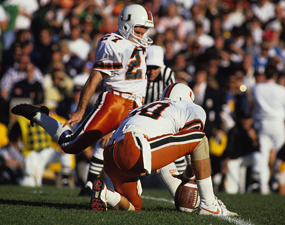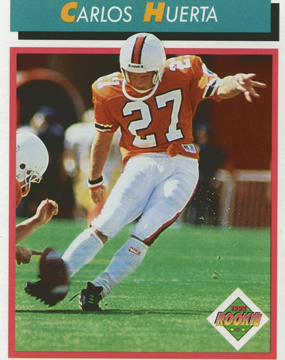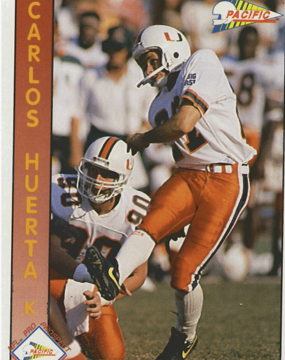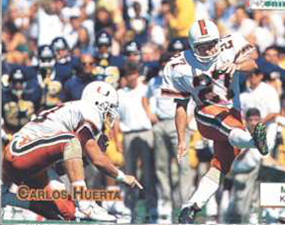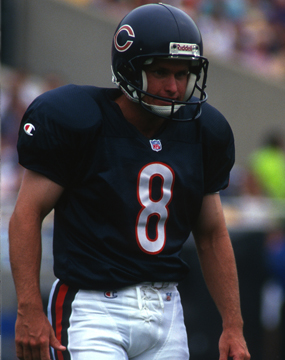
In Part II of our interview with Carlos Huerta he talks about the differences between Coach Johnson and Coach Erickson, how he got the number 27, where he thought the toughest place to play was, what he thinks of the current state of Hurricane football and much more!
Click here to read Part I of our EXCLUSIVE interview with Carlos Huerta. pC: So what would you say was the toughest part about playing at Miami?
CH: Once I made the team it wasn’t tough. It was earning the starting position. After that, I would say what kept me focused was you know, we had such great athletes on offense and defense, leading scoring team in the nation just about, number one defense almost every year. I always felt like alright, “I can’t lag behind those guys, I don’t want to be the weak link” so I kind of made it a point to really be on top of my game, but once you’re a starter you’re given every opportunity to succeed and coming from that position that I told you about where I was kind of treated like garbage, I never wanted to go back there. I kept clean, I went to class, I tried to keep my mouth shut usually and work hard so I’d perform well. But you know the coaching staff and this team definitely seemed to always put me in a position to succeed and I didn’t want to let them down, but making the team was the toughest.

CH: My favorite memories are winning those very high profile games. Beating Florida State when they were ranked number one, my first game ever.
pC: The was the game FSU made the rap video for. . .
CH: Correct. 1988 and it was prime time TV, I think it was a Monday night game. We were on ABC prime time. Winning at Michigan, beating Notre Dame here, beating the Nebraskas, LSU, Alabama and the Sugar Bowl, Texas and the Cotton Bowl. You know I used to watch those games as a fan and it was surreal to actually be on the team and win, I thought I was in fantasy land. So it wasn’t so much my individual performances. The way I looked at it is, if I made a game winning field goal or an important kick, I HAD to do that or I’d be letting my team down so you know you can’t win by yourself so it was the team aspect and winning those big games that is indescribable when you grow up being the fan of a hometown school and being in that position.
pC: Talk about being in the room when Jimmy Johnson popped in the FSU’s rap video for all of you to see.
CH: The one thing about our teams as intense as they were, great players, great athletes, and I’m sure it’s similar in a lot of other places, but I specifically remember those UM teams, we had a lot of very funny guys on the team so anytime anything outrageous occurred the reactions of our teammates was what I always looked for because they were hilarious. The shock factor was good in and of itself, but to see the reactions of the players; they just went off. When that video was shown to us and then to see the reaction of these players was funny but it almost made me think there’s no way we’re losing that game because these guys are going to go bonkers on Monday night. It almost, in my head, took the pressure off because I saw everybody was ready.
pC: You played with a bunch of greats to say the least, if you could name one who would you say was the top player you played with at UM?
CH: There are so many and it’s so difficult, but I’m kind of also the typical fan that’s impressed with the premier players, the wide receiver and the running back that make such exciting plays so I’m not going to give the Russell Marylands and the Cortex Kennedys and the Greg Marks, the line backers [Jesse} Armstead, [Michael]Barrow, [Darrin] Smith, what they deserve. There just are so many. I just have to say this; one thing that amazes me is the kick off coverage team. This is what amazes me, when we beat Alabama in the Sugar Bowl in 89-90, usually in college you could travel a lot of players and it’s the younger players who do the special teams. I think that there were eight eventual NFL Pro Bowl players covering kickoffs for our team at the time, so how can you pick? If you start going down the line they may not have made the Pro Bowl every year, but they at least made the Pro Bowl once. That same team set a record, I wasn’t the punter, but the total return yardage against our team that year all season, not average, was 4 yards TOTAL.

CH: Yeah, punt returns those are basically the same guys covering punts. So Darrin Smith was an absolute freak of nature because he was so fast. Darryl Williams, the safety, was amazing. There were some younger players that amazed me talent-wise that maybe aren’t as great in everybody’s mind but, Horace Copeland was such a freak of nature so fast, so strong. Chris T. Jones was amazing, Steve McGuiire before his knee injury was phenomenal. Gino was a great quarterback but in terms of prototype college quarterback for me, Walsh was incredible, he just always made the right decisions.
pC: He didn’t have the strongest arm but.
CH: Right and that’s probably why he didn’t start in the NFL for as long as he could have. We had some great running backs, I don’t feel I was a teammate of Melvin Bratton, I was a redshirt that year, and I was only with him for that season, but he was incredible to see play. One of my roommates that blew out his knee and later never started as much but in practice as a linebacker was one of the most amazing players I ever saw was Matt Britton. He was number 99, he ended up backing up Michael Barrow and playing a lot when they played the four linebackers. He just wasn’t the same after his knee injury but what he would do in practice, he would just terrorize the offense, and not just because he was my roommate. There were just so many players. To watch Brett Perriman and Randall Hill run they would look like they weren’t human, so I could just go on and on. There were just some really, really talented guys.
pC: Who were you closest with? Your best friends?
CH: I’d say Mario Cristobal, Matt Britton were probably my two closest friends, we were roommates and Eric Miller.
pC: Any coaches you still talk to?
CH: Rob Chudzinski, he’s a coach now, he was my teammate. I’m still real close with him. He’s out west. I speak with him. You know, I run into Jimmy Johnson here and there, it’s not like I call him up on the phone but its really good to see him during our functions, but there aren’t many of them that I really call up on the phone, but I actually was thinking about giving Dennis Erickson a call recently.
pC: You played under Jimmy and Dennis. Jimmy is the fiery type and kept everybody in line and Dennis is perceived as kind of loose and let the players run the show. Many people say Dennis was given the keys to the Porsche told not to wreck it. Talk about that difference and was it as a loose as it’s portrayed under Dennis?
CH: That’s a good question. When I think back on those two coaches, they are extremely different, no doubt. I kind of think of Jimmy Johnson as a more defensive and special teams kind of coach. He always preached to win all three phases and we were really good at winning all three phases when he was here and he really monitored those two aspects of the game. It seems like he really didn’t touch the offense at all that was Gary Stevens’ domain. It was a brilliant thing to do because Gary Stevens was a great offensive coordinator. Jimmy was brilliant for doing that and letting the right guy do that yet I think after that Penn State loss, which I was just a fan I wasn’t on the team, I don’t know how he was before that but Jimmy Johnson just would not let you breathe on special teams if you weren’t doing it right. I think we had the best special teams in the country. I think that Penn State game was lost not because of Vinny Testaverde. I think they got whipped on special teams. Granted Vinny did not have his usual game, but if they would have played well on special teams, they still would have won that game and Johnson was a fanatic about it and it showed on the field, we were phenomenal.
Dennis was an offensive genius. He really was great on offense and again he was also pretty smart in letting Sonny Lubick run the defense. He was a really good defensive coordinator and he kind of let him do that and we had an amazing defense. My senior year we were number one in the country and it wasn’t because of Dennis, I mean he oversaw it, but he let the right guy run it. So in terms of giving the keys to the Porsche, I’ve heard that statement too, I think that’s probably true. While I was here with Dennis, did we have some problems and issues? Yeah, we had some disciplinary issues, we did some things that were incorrect but on the field I thought that we were a disciplined football team. I think that a lot of the players at the time were Johnsons’ and we had been educated under that system and we were a well oiled machine but you’ve got to give Erickson credit for not coming and putting in a different oil and ruining the engine. I mean you’ve got to give him the credit. They were polar opposites in style and method though. I thought they both worked, I considered Johnson one of the most influential people I’ve ever been exposed to though. He is a genius in a lot of ways and an incredible talent. Dennis I think did an amazing job, but Johnson I think was just an incredibly talented guy.

CH: Yes.
pC: Talk a little bit about that. Was it a group of players that went to then Athletic Director Sam Jankovich’s office?
CH: You know I didn’t do that, I think there was a group that did that, but I was definitely vocal in the local newspapers and in interviews. I was once referred to as the team spokesperson, which I don’t think I was, but I was really lobbying for Gary Stevens. Gary had proven himself as offensive coordinator and we wanted him he was our own guy.
pC: Why the number 27?
CH: Do you know that story?
pC: No
CH: Oh. That’s pretty funny. For me it is. Johnson’s management style was that he really kind of kept you guessing lots of times. Now it’s less, but we had like 95 scholarship players and we had like 18 substantial walk-ons. So we’re already over 110. So I was just this walk-on that nobody expected to ever do anything, so I didn’t have a number. Our largest offensive lineman was 6’9 and he moved to tightend for the Oklahoma game because he was going to be a special blocker as a dual tightend and so they gave me his jersey, 6 foot 9, 300 pound guy’s jersey. I wore that jersey at that Orange Bowl and it was beyond a long sleeve shirt. Well, I tucked it in, I think they ripped the name off the back so I wasn’t Schaffer, but I was number 78. So I never really had a number, I was a piece of garbage. So I told you that whole story about how I got a little bit of a shot during spring and Kim and I competed for the job and I didn’t even know I was going to be the starting kicker. I had my head down, showing up to work everyday doing the best I could, none of the coaches ever told me I was going to be the starting kicker.
pC: Until when?
CH: None of them ever did! So we had our orange and white game and I had a very good scrimmage and Edgar’s leg was done, he could barely kick and he didn’t. It was starting to get close to the time where the coaches would pin down all our starters so I’m optimistic and hoping I get the job. Jimmy Johnson’s office used to be where the academic offices are now and I was walking by his office and I never really wanted to hang out by his office, I needed to go by his office because I had to get to a meeting or something and he saw me flying by and he yelled at me and he said ‘hey Carlos!’ and I went and took a couple of steps back and said “yeah coach.” He says ‘you did really well last night’ and I said, “ok thanks I felt pretty good.” I missed the 55-yarder by a little bit and said “I wish I would have got the 55-yarder but thanks” and that was it. So I think there were five days before the Florida State game and I think the next morning or something Rich Davenport who I think is still with the Dallas Cowboys asks me to go do an interview. I was in his office and he says ‘here, by the way, here’s your jersey. You’re number 27.’ Not ‘hey you’re playing in the game’ but I didn’t want to ask the question because if you’re doing well you just want to act like you are the guy, so I kind of looked up at him and Rich was always great to me, he really looked out for me I thought, and he’s a great guy. I remember he was standing and I was sitting and I kind of looked up and go “I don’t even get a chance to choose a number?” and he says ‘nope, because the only other number left is number 55 and its just way too big for you, so you’re number 27.’ And that’s how I found out I was playing in the game. It was obviously a really, really huge moment for me, I wanted that job and worked really hard for it.
pC: And you kept the number. I’m sure maybe you could have changed it later on if you had a choice?
CH: Remember, I was very superstitious my first two years, I wasn’t about to change that number, it was working! [Laughter]
pC: Were you an All-American your senior and your junior years?
CH: As a freshman I was a freshman All-American and then sophomore and junior I was either honorable mention or third team or something. Then my senior year I think I was consensus All-American. I’m pretty sure, but yeah I was Walter Camp, and AP and Kodak which I think at the time were the All-American teams.
pC: Did you have a nickname?
CH: Just ‘The Ice Man.’ Still to this day, it stuck. I mean I don’t think they would all call me that but yeah, my high school coach gave me that name.
pC: What would you say was the toughest place to play?
CH: The toughest place to kick in terms of conditions that I ever played in was Missouri because I remember there were 40 something mile an hour winds coming off the plains and you just didn’t know what the ball was going to do. You could kick it perfectly and totally miss or kick it kind of bad and the wind would carry it in. In terms of stadiums, and irritating crowds, I’d say Florida State and Notre Dame are rough, really rough.
pC: Would they taunt you a lot?
CH: Oh everybody would. I mean they were just right on top of you. The screaming and the yelling right on top of you because once they get a little bit of distance from you it all kind of sounds the same but it was just a real tight stadium and they kind of get in your ear and you can hear what they’re saying.
pC: Who would you say was the most influential person in developing your kicking game specifically?
CH: I never had a coach in kicking. Nobody really worked with me technically. I was just a soccer player that knew how to kick.
pC: No formal training?
CH: Zero.
pC: I thought they got special outside coaches?
CH: They do, but on most staffs there are no knowledgeable kicking personnel. They’re just on their own. ‘Hey you’re good, you’re talented, you figure it out.’ But I never had a technical kicking conversation with my high school coach, or Jimmy Johnson, or my special teams coach. You know maybe the special teams coach at the time might have noticed my plant foot might have gone too far and pointed something out every once in a while but no one really ever coached me in that regard. I practiced a lot and I had a natural stroke. I could kick a ball at 6 years old further than most 13 year olds. It wasn’t that I was strong I just had technique, like I said I played soccer every season since I was seven years old and I’d always take the free kicks and just knew how to do it. My high school coach really taught me the mental aspect of kicking and whatever he did worked. He put me in game-like situations everyday and Jimmy Johnson did the same thing and that’s the key because if you don’t make it like a game-like situation, you get into a game and it’s very different. It’s like shooting darts or being out there in war and having to kill somebody is different, you know it’s not that extreme, but kind of. Anybody can leisurely go out and just kick the ball but everybody’s rushing at you and you’ve got to get it off real fast and you’re dealing with the movement of the ball from the holder, the intensity and then a real line jumping up to try and block your kick where you’ve got to get accustomed to getting it up quickly or if not, you’re going to get stuffed. So what they did in practice in making everybody work really hard and making sure that the line wasn’t taking reps off during field goal drills, that really made a big difference

CH: Yeah, you know a lot of people say that the ball is different and it doesn’t have stripes versus it having stripes.
pC: Isn’t it a little bigger?
CH: The ball is slightly different but it doesn’t affect the kick to me at all. It weighs the same, it feels the same. Again it was that transition of being in such a well run top program and all the pro franchises are not and dealing with the different management and how things are run. When it runs poorly that trickles down to every phase of the game, the players, their attitude and I felt like in the NFL or at least when I was there, a lot of these coaching staffs [were not very impressive] except Marv Leevy’s. Marv Leevy’s team was impressive. He had been there for so long, his coaching staff was excellent, he was excellent. I would have loved to have made that team because of him, but I felt like on the other teams I was on, everyone was either so paranoid to lose their job that they were so stressed out that it was unhealthy, it was an unhealthy mental environment and it was counterproductive to being a really top performer. So that was pretty tough because everybody around you is on edge, it’s almost like they assume the worst and that’s not a good environment.
pC: It just seems that it’s more of a business.
CH: Yeah, we felt it was a business in college but maybe it’s more, it’s just more pressure you know? I think the fact that there’s a mentality that the pros are being paid and its okay to rag on them and boo them, not that you don’t get ragged on as a college player, but I think there’s more empathy from the fans and the media when you’re just a college kid and not being paid. People don’t get on you as much; I think that does kind of add to the tension you know.
pC: Did you have any other Hurricane teammates when you were with the Bears?
CH: Pat Riley. I think that was it.
pC: Talk about the whole U family. It sounds like you stay well connected. Talk about that bond.
CH: Well we said back then that playing here and being a part of this program may be the most fortunate and best opportunity that we ever would have in our lives. To be a part of a number one program in anything, especially something that you care about and work at, you consider yourself really fortunate and I think that there was some tension at times and everything didn’t always go smoothly but once you get to a level where you’re performing that well and things go that well and you’re that successful, you form bonds that last forever and I think that’s the way it is. We all knew that pushing each other would lead to great success and we knew how to push each other’s buttons for the most part in the right way and it was just a unique situation that I don’t think many of us ever experienced again. You know I think Jimmy Johnson did it with the Dallas Cowboys and I was lucky enough to do it in the Canadian League but it was only for one year and then the team was broken up. We had you five years of continuous success. Those bonds you form, the people that you end up trusting those times usually its something that you don’t lose and that’s the way we are and even those older players that I didn’t play with when they see me they remember me and they know that I affected things positively. You just don’t let that go.
pC: Would you come back soon after you left? Would you help your successor Dane Pruitt?
CH: A lot. I worked with Dane quite a bit. I got cut and I was living here. I was still training because I was still getting tryouts and workouts quite frequently and then signing again so I was taking my workouts really seriously, I would work out in the gym too.
pC: At UM?
CH: Yeah they’d let me workout there, I’d use their fields. The equipment manager would let me use the balls still and I would work with Dane quite a bit, not necessarily during their practice because that was an NCAA violation. I couldn’t go out there and practice but on his off-time, or we’d even meet and go over concepts. Dane was smart and he did a pretty good job, it’s not like he needed me. There was one point where they changed the blocking line and the scheme and did some things differently and that kind of threw his momentum off, but he had a really good career all in all.
pC: He obviously had some pretty big shoes to fill in yours but he did pretty well.
CH: He did. I remember his junior year he missed one field goal all year and he was 3rd team All-American so he did really well.
pC: What do you think about the last couple of years of Hurricane football?
CH: I don’t know if it’s on the right track or going back up. I don’t know enough, but it definitely is much, much better. For the first season in a long time as a fan now and watching, it was exciting to watch them play and you had hope that when they needed to score, Jacory Harris could get it done. I mean they’re explosive, they’re a little young and maybe made a few mistakes that next year they won’t make, but it was exciting to watch them and you had hope. In prior years I don’t know what happened with the offense. It was just so stagnant. I think that the reason they may have dropped off a bit was I kind of felt they had such amazing success with Butch and Larry Coker and then that game against Ohio State, which I still think they got hosed on the call, but they were a great, great team. I think they just kind of rested on their laurels a little bit and stopped working, stopped looking to be that great team. I think they thought ‘hey we’re so good now, we just are on automatic pilot’ and I think that caught up with them.

Jimmy Johnson: Flawless
Larry Coker: I didn’t know him that well. Classy
Orange Bowl: Mythical
Dennis Erickson: High Scoring
The Ibis: John Routh? John Routh was the best mascot I’ve ever seen. Yeah he was the best
Art Kehoe: Hilarious
The Fiesta Bowl: Motivating
Ohio State: Over achievers
The Sugar Bowl: Which one? We were national champs but people don’t think about that for some reason, everyone thinks of the George Teague one. But I don’t think of that one, I think of the one we won. I want to say trailblazing and the reason I say that, I mean Erickson came in his first year and we won a National Championship, who does that?
Dolphin Stadium, or Landshark Stadium:Jimmy Buffet
pC: Have you been to a game there yet?
CH: No, no I didn’t go all season.
pC: What do you think about that, what do you think about the move from the Orange Bowl?
CH: Financially I’m sure it’s the right decision, but it will never be the same. You can’t create what was at the Orange Bowl. So ultimately, I don’t think that we will have the same success because going to play at that Orange Bowl for opposing teams was awful. We just had such a huge, huge advantage I thought.
pC: Your Favorite NFL team?
CH: I don’t really have one. I mean I follow the NFL, I don’t root for anybody. I’m fascinated with the successful programs. I know the Steelers weren’t great this year but I like that [Chuck] Noll, [Bill] Cowher, [Mike] Tomlin, how the franchise stands behind them, supports them and each of them has won a Super Bowl. There’s something in those organizations and obviously the Patriots are up there every year, you’re not going to win every year, but I’m fascinated by that.
pC: The NBA? Any particular affinity toward that league?
CH: Although I think LeBron James is almost at or will be almost at a Michael Jordan level, the most exciting thing about the NBA to me is Dwayne Wade.
pC: Favorite food?
CH: Ice cream, that’s easy.
pC: What band or group or music would we be most likely to find on your Ipod?
CH: The Beatles
pC: What movie could you watch over and over?
CH: Stripes.
pC: TV show you can’t miss?
CH: It was Seinfeld.
pC: What do you do in your spare time?
CH: Work.
pC: Two websites you have to check daily?
CH: Daily? I don’t have that.
pC: I think we’ve covered everything. Thank you for this.
CH: My pleasure, I like reliving the old days.
We at proCanes.com would like to thank Carlos Huerta for being so gracious with his time to do this very insightful interview for our new feature "Tracking proCanes." Click here to check out our past interviews with Leon Searcy, Steve Walsh, Frank Costa, John Routh, Chad Wilson, Mike Rumph and more!
Click here to read Part I of our EXCLUSIVE interview with Carlos Huerta. We would like to thank JC Ridley of
www.caneshooter.com and
dailycaneshooter.blogspot.com for providing us with Carlos Huerta's Chicago Bears photos.
Click here to order Carlos Huerta's proCane Rookie Card.











